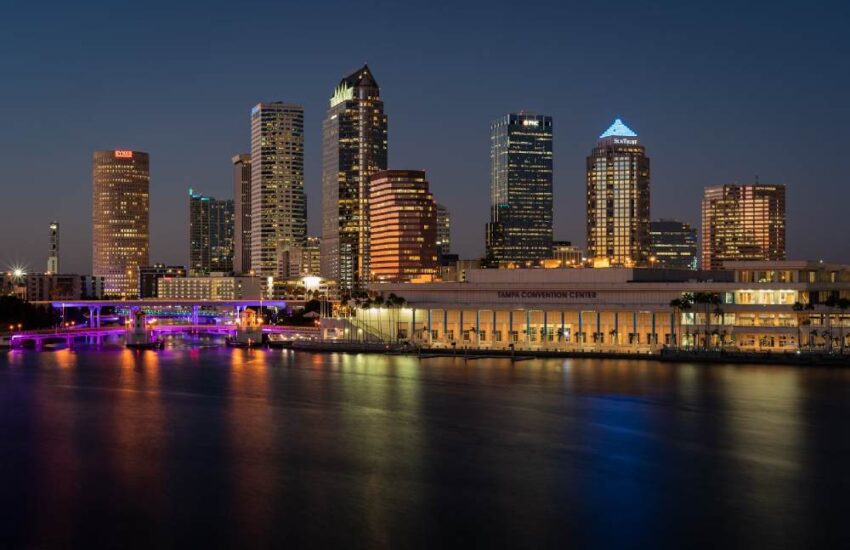Top 10 Facts You Need to Know About Living in Antigua and Barbuda
Among the Caribbean nations, Antigua and Barbuda is one of the most viable countries for economic citizenship. The country offers citizenship to investors via investments in Caribbean real estate properties, a business, the University of the West Indies Fund (UWIF), or the National Development Fund (NDF).
Whichever investment route you choose, it’ll be your ticket to become one of the lucky few to get the right to reside in this beautiful dual-island country.

Famous among tourists, Antigua and Barbuda is also a great place to call home. Between the beaches and the friendly locals, you can have the most peaceful life anyone could ever ask for in this beautiful country.
Getting ready to move here?
Below are the top 10 facts you need to know about living in Antigua and Barbuda:
The Islands
As a new resident of the nation, you need to learn that Antigua and Barbuda is only named after its two main islands, which aren’t the only ones the country has. There’s a third one, called Redonda.
This tiny unspoiled island remains uninhabited. After all, Redonda is the remnant of a volcanic cone rising almost 1,000 feet above sea level, filled with steep cliffs on the sides.
Besides its third major island, Antigua and Barbuda’s territory also extends to other smaller isles, including Bird Island, Guiana Island, and Long Island.
Size
The entire nation has a total land area of 171 square miles. Of that, 108 square miles is all Antigua, making it the largest and longest island in the country (a 14-mile stretch).
Meanwhile, Barbuda has a 62-square-mile land area, and Redonda only covers 0.5 square miles.
Education
For Antigua and Barbuda, education is one of the most important sectors in the country.
The government spends 2.5 percent of its gross domestic product (GDP) earnings on this department. This has paved the way for 91 percent of all students completing the mandatory seven years of primary and post-primary education.
Currency
The currency in Antigua is the Eastern Caribbean dollar (XCD), the same as many other Caribbean nations.
When you move there with United States dollars in your pocket, you can choose to exchange your cash for the local currency, but it’s not a requirement since many establishments there (even the government) accept American currency.
The exchange rate is pegged with the US currency, making it quite stable as far as non-major currencies go.
Economy
Like many Caribbean nations, the Antiguan economy relies heavily on tourism. This is to be expected not only due to the islands’ beauty but also because of the popularity of the annual Antiguan Carnival held early in August.
Besides this, the country celebrates international regattas that bring tourists and enthusiasts from all over the globe, including Antigua Sailing Week, which occurs at the end of April. During this event, members of the ocean racing yacht society from around the world get together to enjoy the turquoise Caribbean seas.
Moreover, world-renowned cricket players also visit the nation and hold practice matches in their International Cricket Association-approved cricket field.
Reaching Antigua and Barbuda
Another thing you must consider before moving to a new country is how to get there.
For Antigua, this is easy since there are direct flights to the country from Canada, the U.S., and the United Kingdom (UK). Some European cities also have flights headed to the V.C. Bird International Airport located about five miles northeast of the capital city of St. John’s.
Below are some of the ?airlines that offer direct flights to Antigua and Barbuda:
- American Airlines
- Delta
- Jet Blue
- Air Canada
- British Airways
- Virgin Airlines
- Liat
You can also book a private jet charter from the United Arab Emirates for the most luxurious and comfortable trip.
Getting Around Antigua and Barbuda
Once you arrive, you can rent or buy a private vehicle in Antigua. You’ll find several rental agencies on the main island, some of which are located in St. John’s and near the airport.
You can also buy a car from private owners or dealerships, but you need to have a local driver’s license to be able to drive legally.
Don’t worry; even a temporary permit would be enough. You can get one from the Antigua and Barbuda Transport Board or any police station in the country. This costs about USD20 for three months. You just need to bring your driver’s license from your country of origin for validation.
Just know that a car purchase requires a different set of documentation.
If you can’t drive, you can also hail a cab or ride buses around the country. They have fixed fares to famous Antiguan destinations.
Food and Groceries
St. John’s is also home to Epicurean, a big supermarket much like the major chains you’ll find in the U.S. or Europe.
The establishment offers a mix of global brands and locally sourced products. They also host a weekly farmer’s market, where you can browse a wide range of fresh produce grown on the island.
The Epicurean branch in the Jolly Harbour commercial area also has a pharmacy, in case you’re in need of medical supplies.
Besides this, you’ll also find other supermarkets like Chase Distributors, First Choice, Cost Pro, and the Gourmet Basket.
Want to order takeout? Choose from over a hundred different restaurants in Antigua, ranging from fast food to fine dining options. You’ll even find some familiar franchises there, including:
- Subway
- KFC
- Fred’s Ice Cream
Many excellent restaurants combine West Indian, international, and local cuisine in Antigua.
Mobile Services
Worried that you won’t be able to reach the people you leave behind in your birth country?
Don’t fret because unlocked phones work quite well in Antigua. Service providers can also unlock your phone if needed.
If you want a local number, you can always buy a local SIM card and service plan from any mobile store in your neighborhood.
Banking
Money is essential, no matter where you live.
In Antigua and Barbuda, the safest way to keep your money safe is to deposit it through a traveler’s check, credit, or debit card into a bank account.
Visa and MasterCard debit cards also allow you to transfer money from an overseas account to your Antigua and Barbuda bank.
Note, however, that wiring money can take several days to clear and comes with high fees. Your personal checks also need to be cleared first (within about three weeks) before you can access them.
Some of the major banks in Antigua and Barbuda are:
- First Caribbean International
- The Bank of Nova Scotia
- The Royal Bank of Canada
- The Eastern Caribbean Amalgamated Bank
Enjoy Life in Antigua and Barbuda
Becoming a bona fide citizen of Antigua and Barbuda can take time, but it doesn’t mean you can’t learn the essentials even before moving to the country.
Research more facts about Antigua and Barbuda, and look forward to enjoying your life here.


